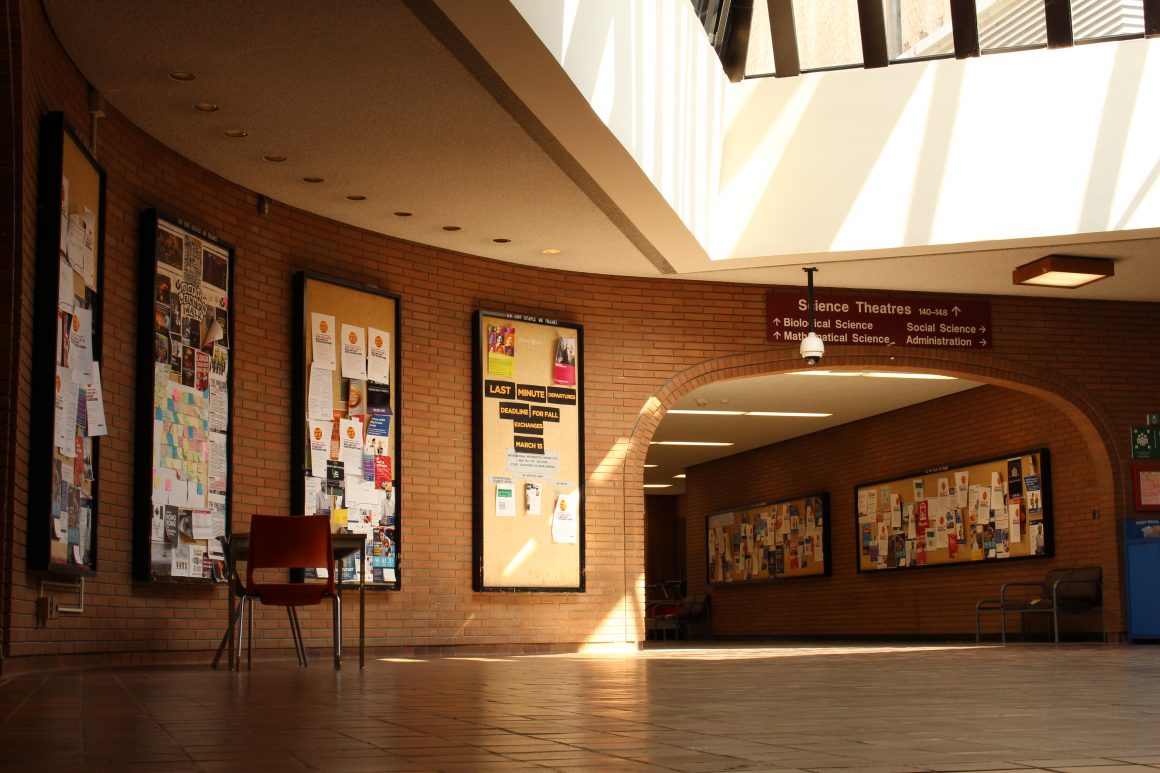
Food Justice Now providing meals to students March 1
By Luis Armando Sanchez Diaz, March 1 2022—
Food Justice Now will be providing a hot meal to students on March 1.
Food Justice Now is a subcommittee of Students for Direct Action and is a project developed along with Home Foods Community Kitchen — both clubs at the University of Calgary and in partnership with Zero Food Waste Calgary.
In a conversation with the Gauntlet, Isabelle Reynolds, a second-year law student and outreach coordinator for Food Justice Now, highlighted the work that the organization has been doing over the past months and expressed the prevalence of food insecurity among U of C members.
“We started serving meals last term. I believe our first meal was in October and we have served three meals since then — this is going to be our fourth. It started because on our campus students experience food insecurity. Some recent numbers are showing that 60 per cent of students are food insecure — which is really high,” they said.
Reynolds also emphasised the high prices and a lack of variety among food vendors on campus.
“On campus, there’s a lot of expensive options, a lot of unhealthy options,” they said. “The university isn’t really interested in prioritizing student’s health or student accommodations in the decisions they’re making about who to rent space to. So, we decided to take that into our own hands and start showing up for other students because it became clear that the administration wasn’t interested in prioritizing us.”
“As students we are always financially struggling, especially international students that are paying for literally everything much more than they should have to. I think that this program was really important to help provide everyone with an equal chance of just being able to have the luxury of eating on campus without breaking their bank,” said Prakriti Pathania, first-year communications student who serves as meal coordinator for Food Justice Now.
The service is available to any student regardless of whether they are domestic or international students or are at the undergraduate or graduate level.
Also, organizers stressed that no details are asked when students approach the meal station. However, as part of their COVID-19 tracing mechanism, only their emails are collected.
Reynolds further explained the way the organization has been able to fund their operations and also expressed that they are currently relying on donations they have received from people to continue their work.
“Initially we applied for a Youth Rising Grant, so we had that grant right until the end of January or the first week of February when we did our last meal. That funding is up now. We have collected some donations from students and from people who have heard about us. Right now, [the project’s] being funded solely through donations,” they said.
The ultimate goal of the project is to become more permanent and be financially autonomous through a fee levy provided by the Students’ Union and create a food cooperative — something that is still being discussed and evaluated.
Reynolds thinks that at some point, Food Justice Now can become its own independent entity while maintaining a close relationship with their founding partners.
“We’re operating pretty independently right now. We have enough volunteers. As of now, we are still operating as a little project that Students for Direct Action is running which is useful in terms of booking rooms and all that administrative stuff,” Reynolds said.
“I think it also helps get more specific volunteers to help a very specific target audience by being its own entity itself. Because there are going to be people who want to help out with just Food Justice Now itself,” Pathania added.
The organizers mentioned that they are in the planning process of setting up two more meal stations — one at some point in March and the next one in April, close to exam period.
Both Reynolds and Pathania spoke about the importance of talking about food insecurity among students and educating people about the subject as a way to destigmatize the topic. They also want to show students that they have the means to make things happen and help each other.
“Food insecurity is incredibly neglected. Having information and having people talk about it more often will also decrease [the] stigma for students to actually go up to people like us,” said Pathania.
“Students are so powerful. I want to make sure that students know that they can support themselves and support each other and show up for each other. Especially when our administration and the other institutions we live in failed to do so. We are powerful and we can show up for each other and we can meet our own needs,” Reynolds finalized.
The meal service will be provided from 11:30 a.m. to 1 p.m. at the Sustainability Resource Centre in Science B. Students will be able to enjoy a gluten-free vegan lentil soup and rice.
Visit Food Justice Now on Instagram to learn more about the project and find volunteer opportunities.
